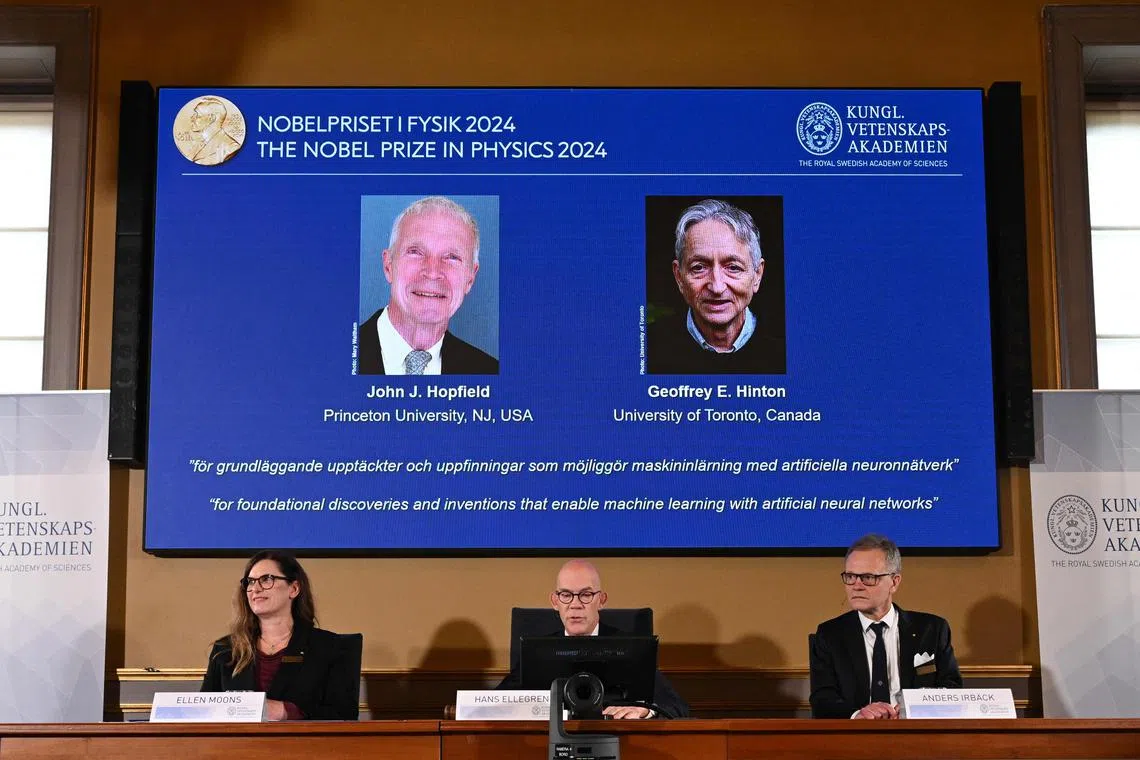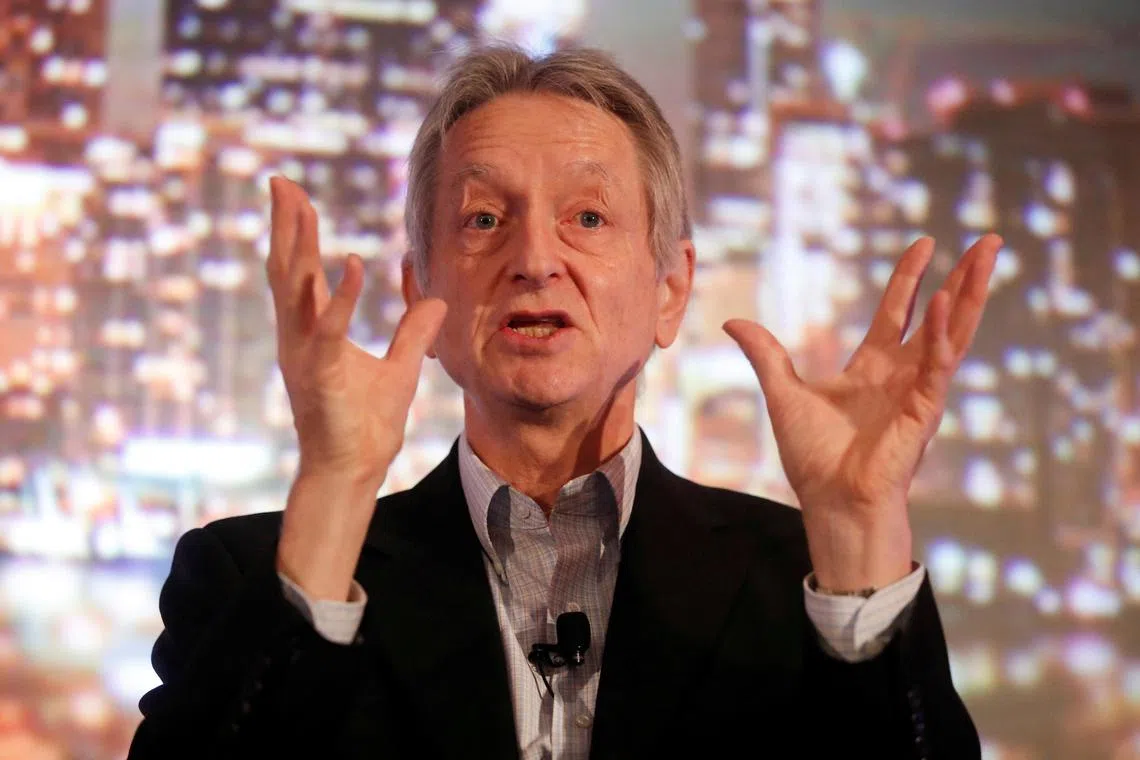2 scientists win Nobel Prize in physics for work on machine learning, AI
Sign up now: Get ST's newsletters delivered to your inbox

American John Hopfield and British-Canadian Geoffrey Hinton helped lay the foundation for machine learning, the Nobel Committee for Physics said.
PHOTO: AFP
STOCKHOLM – British-Canadian Geoffrey Hinton and American John Hopfield won the 2024 Nobel Prize in physics for discoveries and inventions that laid the foundation for machine learning, the Nobel Committee for Physics announced on Oct 8.
“This year’s physics laureates’ breakthroughs stand on the foundations of physical science,” the committee said on X. “They have shown a completely new way for us to use computers to aid and to guide us to tackle many of the challenges our society faces.”
In announcing the award, the committee noted that machine learning “has long been important for research, including the sorting and analysis of vast amounts of data”.
“John Hopfield and Geoffrey Hinton used tools from physics to construct methods that helped lay the foundation for today’s powerful machine learning,” the committee said.
“Machine learning based on artificial neural networks is currently revolutionising science, engineering and daily life,” it added.
Both laureates helped lay the foundation for machine learning, the committee said.
It said Dr Hopfield “created a structure that can store and reconstruct information”, while Dr Hinton “invented a method that can independently discover properties in data and which has become important for the large artificial neural networks now in use”.
“We have no experience of what it’s like to have things smarter than us,” Dr Hinton said over the phone during a news conference.
“It’s going to be wonderful in many respects, in areas like healthcare,” he added. “But we also have to worry about a number of possible bad consequences, particularly the threat of these things getting out of control.”
Dr Ellen Moons, chair of the Nobel Committee for Physics, agreed.
“While machine learning has enormous benefits, its rapid development has also raised concerns about our future,” she said. “Collectively, humans carry the responsibility for using this new technology in a safe and ethical way, for the greatest benefit of humankind.”
‘Godfather of AI’
Dr Hinton, 76, born just outside London, has mostly lived and worked in the United States and Canada since the late 1970s.
He recently retired from his job as a researcher and vice-president at Google – in part, he said, so that he could speak freely about the rise of artificial intelligence (AI) – but remains a professor of computer science at the University of Toronto.
Widely regarded as the “godfather of AI”, Dr Hinton began researching neural networks as a graduate student at the University of Edinburgh in the early 1970s, a time when few researchers believed in the idea.

Dr Geoffrey Hinton is widely regarded as the “godfather of AI” for his research on neural networks.
PHOTO: REUTERS
Forty years later, he doubled down on the concept, launching an effort with the help of other researchers to tackle the technology with backing from the Canadian government. After Dr Hinton and two of his graduate students made a breakthrough with the technology in 2012, he joined Google.
In 2019 – together with Dr Yoshua Bengio, a professor of computer science at the University of Montreal whose research focuses on ensuring that AI is developed safely, and Dr Yann LeCun, chief AI scientist at Meta – he received the Turing Award, often called the “Nobel Prize of computing”, for their work on neural networks.
Dr Hopfield, 91, a Chicago native, is a Princeton professor known for seminal discoveries in computer science, biology and physics.
He created an associative memory that can store and reconstruct images and other types of patterns in data.
Biggest splash
Outside the sometimes controversial choices for peace and literature, physics often makes the biggest splash among the prizes, with the list of past winners featuring scientific superstars such as Albert Einstein, Niels Bohr and Enrico Fermi.
The 2023 physics prize was awarded to Dr Pierre Agostini, Dr Ferenc Krausz and Dr Anne L’Huillier for their work in creating ultra-short pulses of light that can give a snapshot of changes within atoms, potentially improving the detection of diseases.
Physics is the second Nobel to be awarded this week, after US scientists Victor Ambros and Gary Ruvkun won the medicine prize


